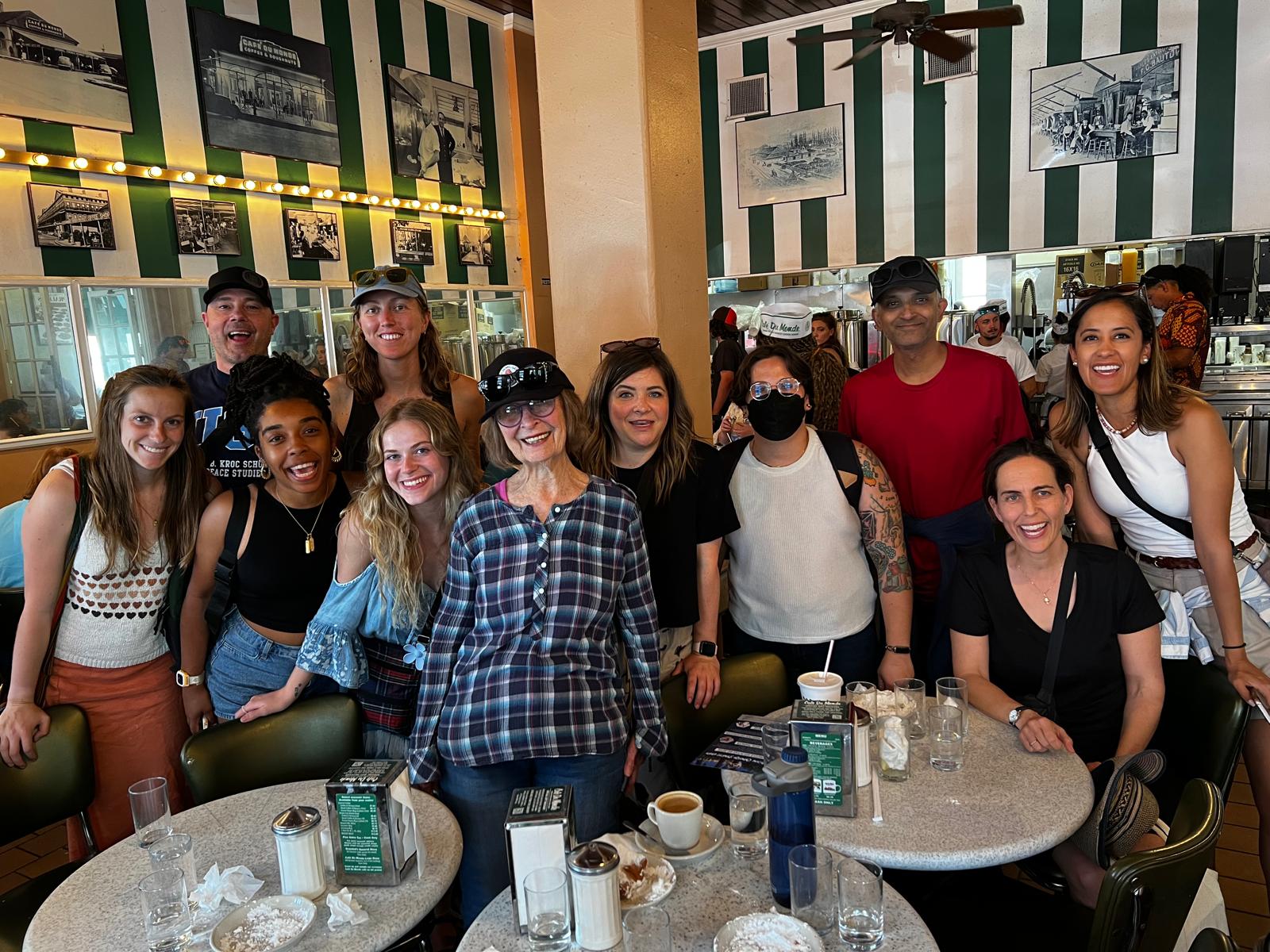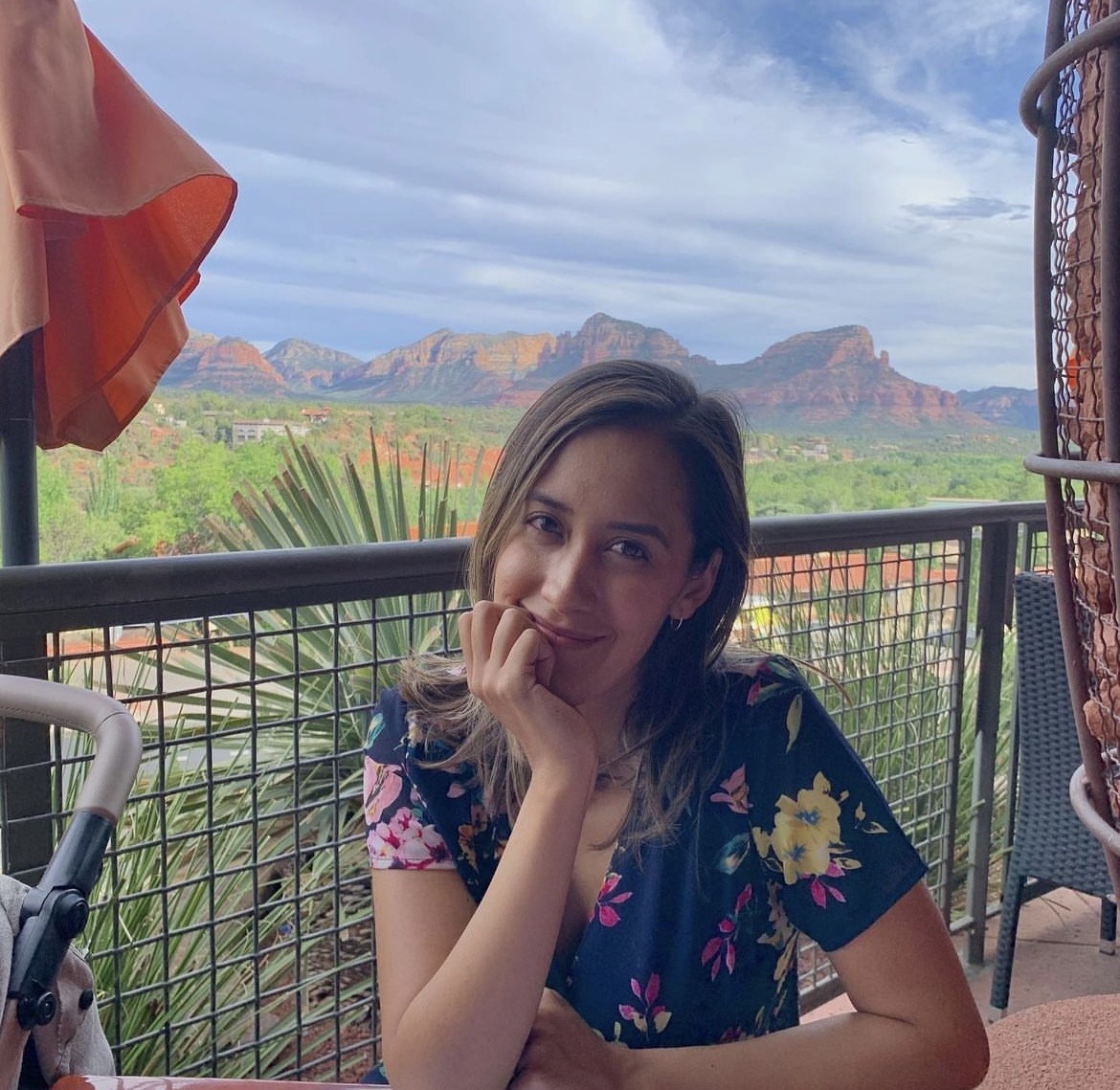Crossing the Divide: Learning and Growing on the Railway Tracks of America

Ana Paulina Nava is a graduate student at the Joan B. Kroc School of Peace Studies at the University of San Diego.
In January 2023, during the Winter Celebration event at the University of San Diego, I found myself seated next to Sarah Federman, Ph.D., Associate Professor of Conflict Resolution at the Joan B. Kroc School of Peace Studies at the University of San Diego. It was my first semester, and I felt lost among the more experienced graduate students. I shared my interest in water rights and indigenous people, which resonated with Federman. She mentioned a project involving a train trip that immediately piqued my interest. A few weeks later, I applied to be her assistant, and we began working on what she called "Crossing the Divide," a practicum course focused on analyzing various divisions within our country.
The course was not designed to be a luxurious journey. Federman’s vision was to take 10 students across the U.S. via train, spending extended periods in the confined space of train cars, engaging with strangers, sleeping in small rooms with bunk beds, and immersing ourselves in significant locations along the way. What began as a 13-stop trip was eventually narrowed down to seven stops, allowing us to concentrate on specific issues and engage with local people, communities, and organizations in each area.
Planning this trip was no small feat; it took us a year and a half of meticulous preparation and a preliminary trip to Los Angeles to ensure we had a solid start. In November 2023, Federman, Tony Campos, our marketing specialist, and I embarked on this preparatory trip. Upon arriving in LA, we explored Union Station briefly before our ten-minute walk to Homeboy Industries, a program intended to assist high-risk youth, former gang members and the recently incarcerated with a variety of free programs, such as mental health counseling, legal services, tattoo removal, curriculum and education classes, work-readiness training, and employment services.
Initially, I was so focused on the logistics that I had only done basic research on Homeboy Industries and had paid more attention to navigating the area. The day was gray and rainy, the streets empty and quiet despite it being midday. Without any specific expectations, we turned left into a small street as indicated by our maps, and our day took an unexpected turn. The street was bustling with activity, people laughing, chatting, getting haircuts, and greeting us warmly as we arrived at Homeboy Industries. The energy was palpable, and we were left speechless. We were fortunate because the founder, Father Greg Boyle, who is a Catholic priest of the Jesuit Order, was there that day. He had been out for a month and around 100 people were waiting to talk to him at the lobby, some looking for advice, words of hope or even just a blessing. We had the opportunity to explain the purpose of our trip to him as we had lunch at “Homegirl Cafe.” Erik, a man who had been released from jail a few months back kindly introduced us to Father Boyle, and he agreed to meet us when we went back with the whole group. He told us how Homeboy Industries had allowed him to rehabilitate and earn some money by giving haircuts to other members. It also gave him the opportunity to be a part of a community that did not judge him for the way he looked.

After spending a full day, meeting people, and listening to their stories, we rode our train back to San Diego filled with new ideas and energy to ensure that the rest of the trip had the same impact and meaning for everyone involved.
The "Crossing the Divide" course in May 2024 was a resounding success. It was dynamic, covering topics such as ecology, fossil fuels, the criminal justice system, civil rights, spirituality, and our nation’s history. Each stop on our journey provided profound insights and fostered deep connections with the communities we visited. I encountered a diverse range of perspectives and stories that challenged my preconceptions and enriched my understanding of the complex issues facing our nation.
Major takeaways from the course included the importance of open dialogue and active listening in bridging societal divides. I learned that real change begins with small, meaningful interactions and that empathy is crucial in understanding the struggles and aspirations of others. The experience highlighted the interconnectedness of various social, environmental, and political issues and reinforced the need for holistic approaches to address them.
As I return to my daily life, the lessons from this journey will stay with me, guiding my efforts to contribute to a more inclusive and equitable society. The "Crossing the Divide" course broadened my horizons and inspired me to continue seeking solutions that unite rather than divide.

About the Author
Ana Paulina Nava is a candidate in the MS in Conflict Management and Resolution program.





